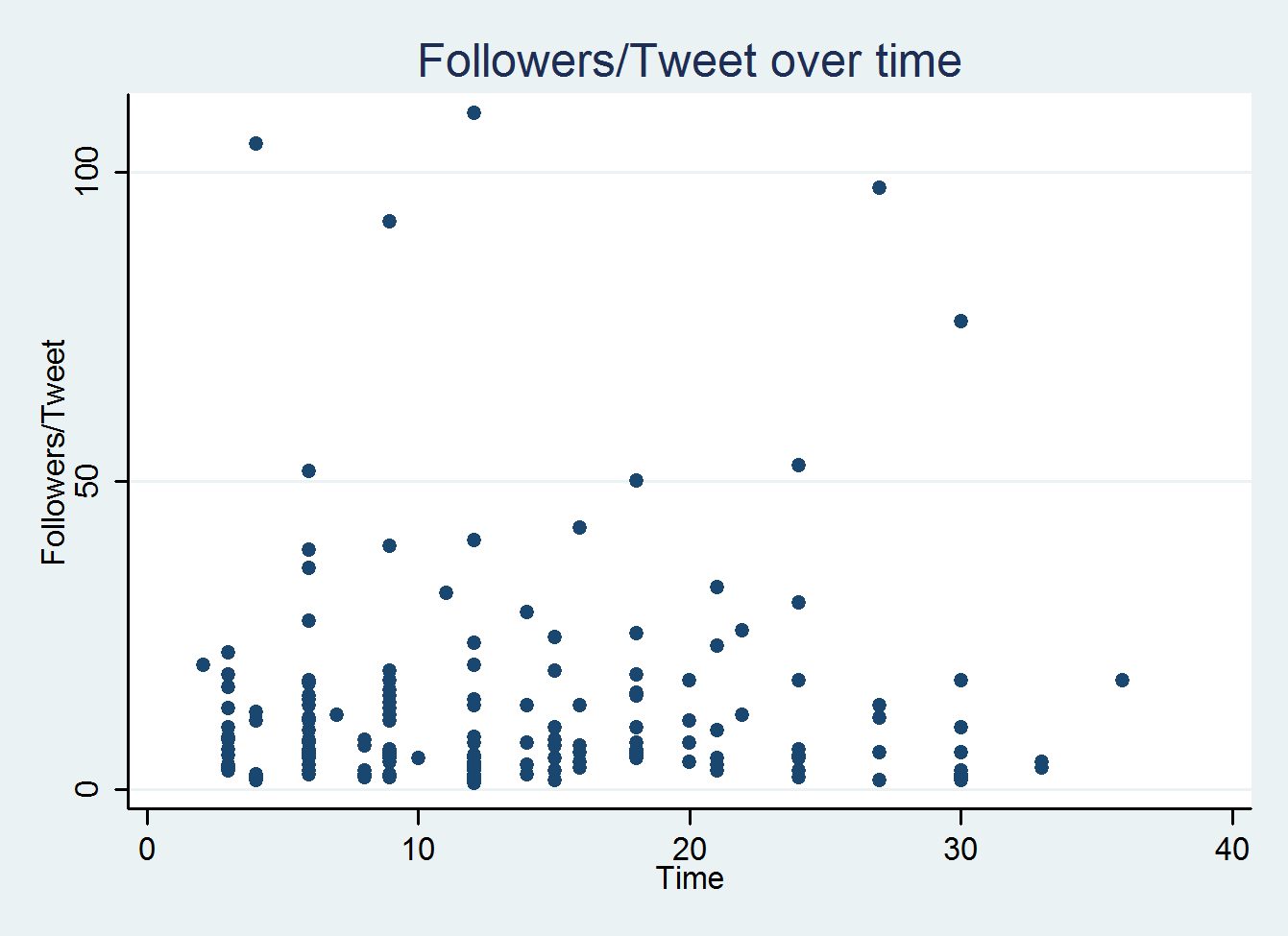Twitter and Congress, Part 2
, Posted in: Inspiration, Author: nleavitt (November 26, 2010)
Back in August I did a post on how members of Congress are using Twitter. Two of the key sources I used were Feng Chi and Nathan Yang from the University of Toronto who released a study back then called, “Twitter in Congress: Outreach vs. Transparency.”
Feng and Nathan recently contacted me and indicated they’re releasing a new study, “Twitter Adoption in Congress,” currently undergoing its second round of reviews at the prestigious Review of Economics .
In brief, this second study takes a close look at the early adoption of Twitter in the 111th House of Representatives. The main objective was to determine “whether successes of past adopters have the tendency to speed up Twitter adoption, where past success is defined as the average followers per Tweet – a common measure of ‘Twitter success’ –among all prior adopters.”
Feng and Nathan reported that their data indicates that accelerated adoption can be associated with favorable past outcomes: increasing the average number of followers per Tweet among past adopters by a standard deviation (eight followers per Tweet) accelerates adoption time by about 112 days.
Other interesting findings:
• The acceleration effect is dampened if the adopter in question is already a Facebook user, or precedes a large number of past adopters.
• Politicians who adopt soon after past successes are themselves successful at attaining followers/Tweets.
• Positive surprises generate an effect analogous to the first bullet point.
• Politicians seem to respond more strongly to recent information about past successes rather than stale information about past successes (no surprise here).
• Politicians don’t react differently to past successes of past adopters within/outside their home state, nor do they react differently to past successes of past adopters inside/outside their party affiliation. Feng and Nathan did add, however, that politicians benefit more from adopting soon after past successes within their home state, rather than past successes outside their home state, suggesting some sort of geographical advantage.
And still somewhat surprising, when I did my August post, Tweet Congress reported that a little over 200 members of Congress are using Twitter. Those figures have grown a bit but there are still quite a few folks on the Hill that have yet to avail themselves of basic social media tools such as Twitter, which I still find perplexing. Thoughts?

Comments